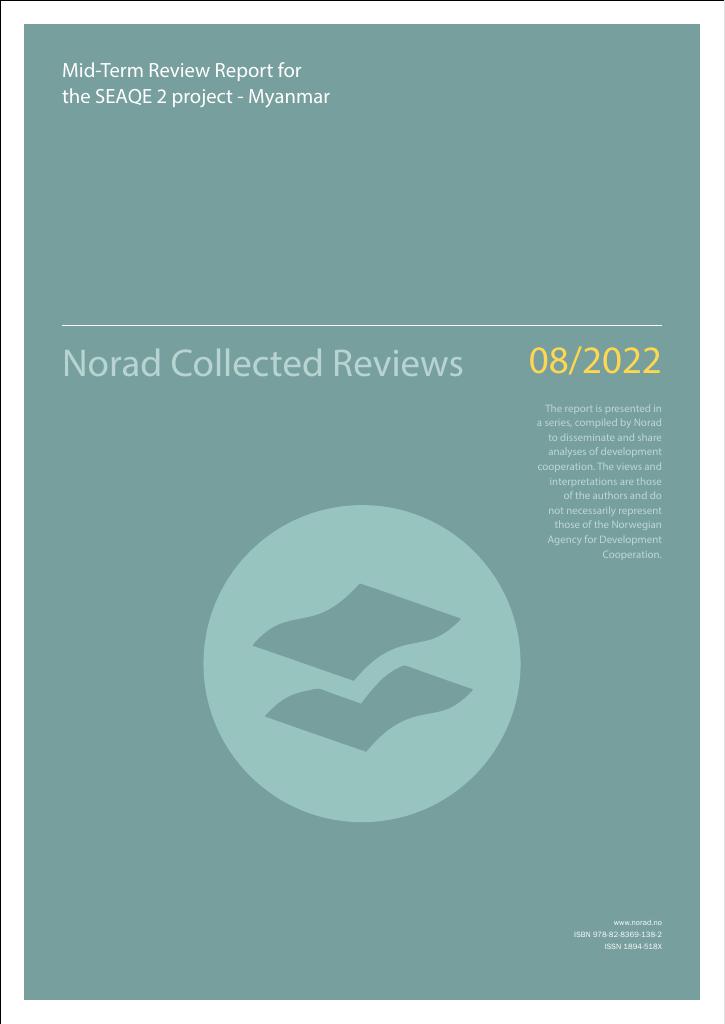Statusrapport
Mid-Term Review Report for the SEAQE 2 project - Myanmar : desentralisert evaluering/Norad Collected Reviews 8-22
The SEAQE project in Myanmar is focused on supporting girls and boys to access, engage and learn in inclusive and quality learning environments in primary, secondary and Technical Vocational Education and Training (TVET) education in conflict affected areas of southeast Myanmar. SEAQE 2 strongly focuses on developing education pathways for ethnic minority children, Out of School Children (OOSC) and youth and children with disabilities. In this phase of the program, emphasis was given to strengthening economic opportunities through enhanced TVET opportunities and strengthening learning environments and education systems. The result being that SEAQE 2 would contribute to equitable and conflict sensitive education reform. Prior to the start of SEAQE 2, the National League for Democracy (NLD) government was pursuing positive political, economic and social reforms. Within the education sector, the National Education Sector Plan (NESP) 2016 - 2021 provided an avenue for greater cooperation and collaboration between the Ministry of Education (MoE) and Indigenous providers of education on important education reforms, such as language in education policy. The National Education Sector Plan (NESP) foresaw the establishment of a partnership mechanism between the MoE and Indigenous providers of education that would allow for the recognition of Indigenous education systems and the establishment of funding mechanisms. It is within this context that the SEAQE 2 project aimed to foster positive engagement between the MoE and Indigenous providers of education to support the development of a diverse but inclusive education system that supported, rather than hindered, peacebuilding efforts. In the first year of SEAQE 2, the project areas in Myanmar remained stable, albeit with political flashpoints slowing high-level peace negotiations. Fighting continued in various parts of the country and tensions between the Karen National Union (KNU) and the Myanmar military over the building of a road connecting four districts in the north of Kayin State were high, with the KNU concerned the road was intended to support military movements. The Government adopted a National Strategy on Resettlement of Internally Displaced Persons (IDP) and the closure of IDP camps in November 2019, despite growing numbers of IDPs in protracted displacement in Rakhine, Kachin, Shan and Kayin States. Despite continued state fragility, education reform efforts continued and during May - October 2019 the MoE commissioned a Mid Term Review (MTR) of the NESP to identify needed adjustments to NESP implementation and to inform the design of the NESP 2 (2021 - 2030). Education reforms efforts were far reaching and complex, ranging from infrastructure projects to the development and rollout of the new curriculum, significant changes to pedagogy and assessment and important reforms in teacher professional development, management and quality assurance processes. ADRA remained engaged in NESP and education reform consultations to expert influence.
